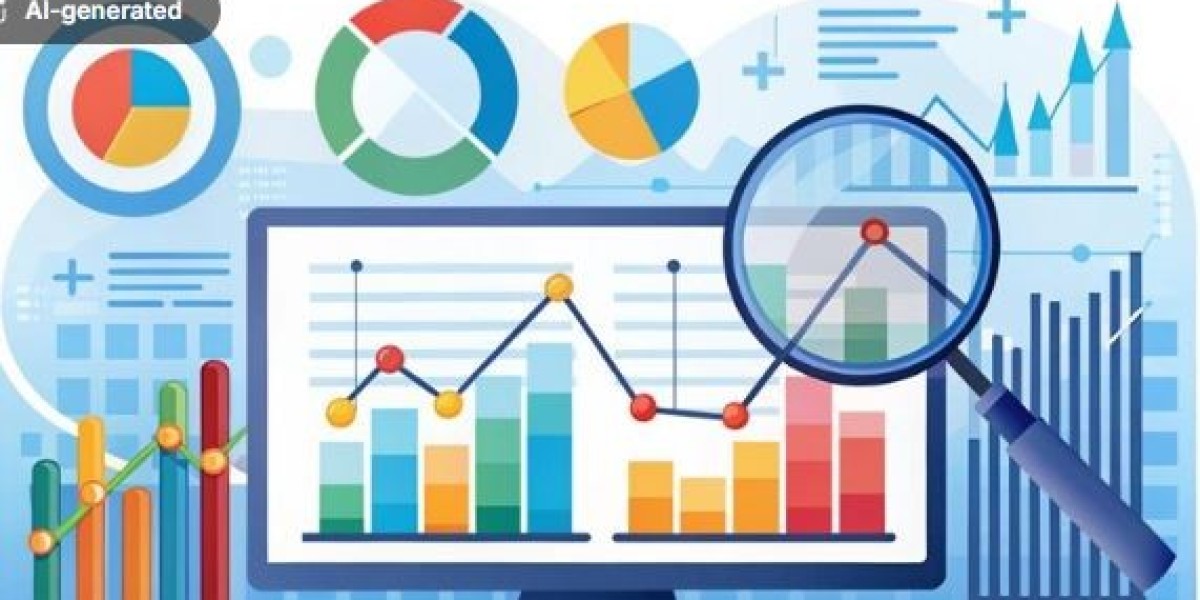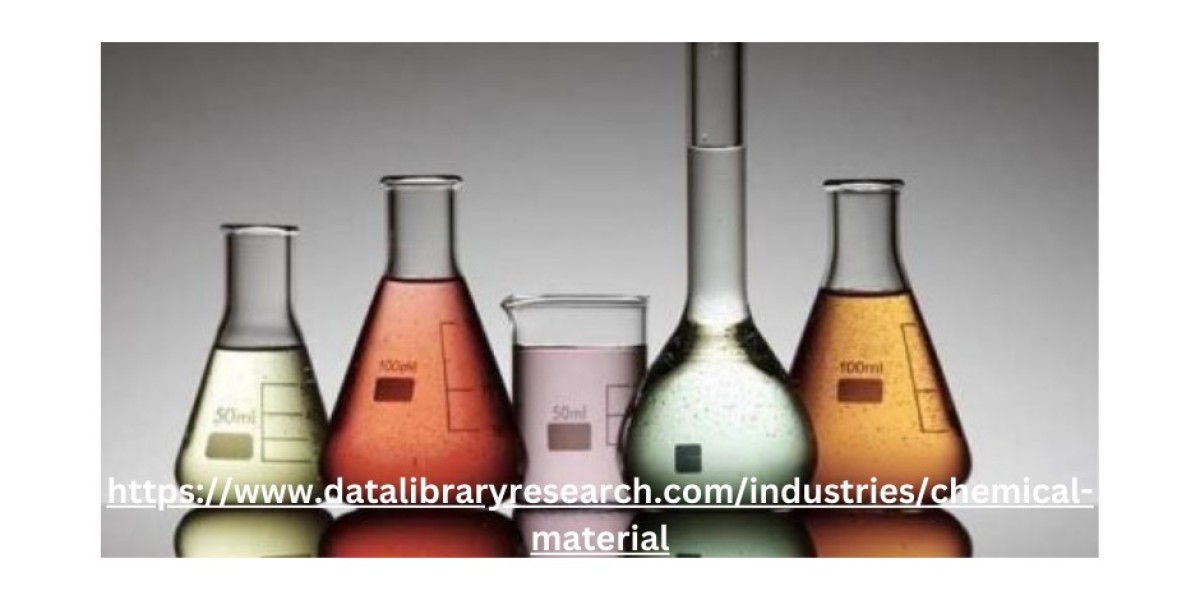Immunohistochemistry (IHC) has become a cornerstone in modern diagnostic pathology, especially for understanding diseases at the molecular level. By using specific antibodies to detect antigens in tissues, IHC provides critical insights into the presence, location, and abundance of specific proteins. This information is pivotal in diagnosing various diseases, particularly cancer, and guiding treatment decisions. As the demand for personalized medicine and targeted therapies grows, the immunohistochemistry market is poised for significant expansion, driven by technological advancements, increasing cancer prevalence, and evolving healthcare needs. In this blog, we’ll delve into the landscape of the IHC market, examining its drivers, challenges, innovations, and future trends.
Download PDF Brochure: https://www.marketsandmarkets.com/pdfdownloadNew.asp?id=121632939
- Understanding Immunohistochemistry (IHC)
What is Immunohistochemistry?
Immunohistochemistry is a technique that uses antibodies to detect specific proteins in tissue samples, enabling scientists and pathologists to visualize these proteins and study their distribution within cells. By tagging antibodies with chromogens or fluorochromes, IHC allows for clear visualization under a microscope, providing crucial information about protein expression patterns. This process is essential for identifying biomarkers, aiding in disease diagnosis, and evaluating treatment responses.
Applications of IHC
While IHC is used in various fields of biomedical research, its primary applications include:
- Oncology: IHC is heavily used to diagnose cancers, predict disease progression, and select targeted therapies. Biomarkers like HER2 in breast cancer or PD-L1 in lung cancer can be identified using IHC to guide treatment decisions.
- Neuropathology: IHC helps identify proteins associated with neurodegenerative diseases like Alzheimer's, Parkinson's, and Huntington's, enabling early and accurate diagnosis.
- Infectious Disease Diagnosis: IHC can detect pathogens like viruses and bacteria within tissue samples, providing insight into infections and inflammatory responses.
- Drug Development and Research: IHC is critical in preclinical and clinical research for evaluating the efficacy of new drugs by assessing protein expression and cellular responses in tissues.
- Key Drivers of the IHC Market
Several factors are fueling the growth of the IHC market, reflecting its increasing importance in precision medicine and pathology.
- Rising Cancer Incidence
Cancer is among the leading causes of death globally, driving an urgent need for diagnostic tools that can accurately characterize tumors. IHC has become indispensable in this area, helping oncologists identify specific tumor markers and subtypes, tailor treatments, and monitor therapeutic responses. With cancer rates expected to continue rising, demand for IHC-based diagnostics and prognostics is also likely to grow.
- Advances in Targeted Therapy and Personalized Medicine
As healthcare shifts towards precision medicine, the need for diagnostics that provide molecular-level insights is more significant than ever. IHC plays a pivotal role in this paradigm by enabling personalized treatment plans based on an individual’s biomarker profile. For example, HER2-targeted therapies in breast cancer and PD-L1 inhibitors in lung cancer rely on IHC testing for patient eligibility. As targeted therapies expand to treat a wider array of conditions, IHC demand will continue to rise.
- Technological Advancements
Recent advancements in antibody development, automated staining systems, and digital pathology have made IHC more reliable, efficient, and scalable. Digital IHC allows for high-throughput analysis, automated quantification, and easy sharing of images among pathologists. Meanwhile, machine learning and AI are being integrated to analyze complex IHC data, helping pathologists interpret results more accurately and efficiently.
- Growing Investments in Research and Development
Pharmaceutical companies, academic institutions, and government agencies are investing heavily in R&D, particularly in oncology, neurology, and infectious disease research. IHC is a key technique in these studies, as it allows researchers to visualize and quantify biomarkers within tissues. Increased R&D spending has led to innovations in antibody technology, detection methods, and imaging techniques, contributing to the IHC market’s growth.
- Emerging Trends in the IHC Market
- Digital Pathology and AI Integration
Digital pathology is revolutionizing IHC by enabling the digitalization and remote analysis of stained tissue samples. High-resolution scanners capture images of IHC slides, which can then be analyzed using AI algorithms to quantify staining intensity and interpret patterns. This trend enhances diagnostic accuracy, minimizes inter-observer variability, and speeds up the diagnostic process. AI integration also facilitates “second-opinion” diagnoses, reducing errors in complex cases.
- Multiplex IHC for Comprehensive Biomarker Analysis
Traditional IHC generally allows detection of a single biomarker per sample. However, multiplex IHC can identify multiple biomarkers simultaneously within the same tissue section. This capability provides a more comprehensive view of cellular interactions and protein co-expression, particularly useful in immuno-oncology, where understanding the tumor microenvironment is crucial. As demand for multiplex assays grows, the market is likely to see a surge in advanced multiplexing solutions.
- Rise of Companion Diagnostics
Companion diagnostics are tests that determine a patient’s suitability for specific therapies, particularly targeted drugs. Many companion diagnostics rely on IHC to assess biomarkers like HER2, PD-L1, and EGFR, which help guide treatment decisions. As the number of targeted therapies expands, so does the need for companion diagnostics, creating opportunities for growth in the IHC market. Collaborations between pharmaceutical and diagnostics companies are accelerating this trend, as both seek to co-develop tests and therapies.
- Development of Novel Antibodies and Detection Systems
The efficacy of IHC largely depends on the specificity and sensitivity of the antibodies used. Advances in antibody engineering have enabled the development of highly specific monoclonal antibodies, recombinant antibodies, and antibody fragments. Additionally, novel detection systems, such as fluorescence-based and enzyme-based labels, improve visualization and quantification. As these technologies become more accessible, they will drive further growth and innovation in the IHC market.
- Personalized IHC Testing Kits
Personalized testing kits for home use are also emerging as a potential future trend, though they are still in early development. While current IHC applications require a laboratory setting, the future may see more patient-centric options for conditions requiring ongoing monitoring.
Request Sample Pages: https://www.marketsandmarkets.com/requestsampleNew.asp?id=121632939
- Challenges Facing the IHC Market
Despite its growth, the IHC market faces several challenges that could impact its development.
- High Cost of Antibodies and Reagents
One of the biggest barriers to the widespread adoption of IHC is the high cost of quality antibodies, reagents, and automated instruments. Specialized reagents, multiplex systems, and advanced detection technologies can be expensive, limiting access in low-resource settings. Cost remains a significant challenge, particularly for routine diagnostic laboratories and developing countries.
- Technical Complexity and Standardization Issues
IHC requires meticulous protocol standardization, as results can vary based on antibody quality, staining methods, and sample preparation. Variability in IHC protocols can lead to inconsistent results, affecting diagnostic accuracy. Efforts are underway to develop standard protocols and quality control guidelines, but this remains a significant challenge.
- Limited Reimbursement Policies
While IHC is widely recognized as an essential diagnostic tool, reimbursement policies for IHC tests vary widely across regions and insurers. Limited or inconsistent coverage can hinder access, particularly for advanced tests or multiplex assays that are often more expensive. Expanding reimbursement for IHC tests will be crucial for broadening access and encouraging market growth.
- Future Prospects: The Road Ahead for IHC
Integration of IHC with Genomic and Proteomic Data
The future of IHC lies in its integration with genomic and proteomic data. Combining molecular-level data from IHC with genomic sequencing and proteomics can provide a more comprehensive view of disease biology, enabling more precise diagnoses and personalized treatments. In oncology, for instance, combining IHC and genetic markers could improve the accuracy of cancer subtyping and treatment selection.
AI-Powered Insights and Predictive Analytics
AI-powered tools will likely play a larger role in the future of IHC, not only in image analysis but also in predicting disease progression and treatment response. By training AI models on large datasets of IHC images and clinical outcomes, researchers can develop predictive algorithms that support decision-making. This trend will further streamline workflows and allow more accurate and efficient pathology diagnostics.
Expansion into Emerging Markets
As healthcare infrastructure improves in emerging markets, demand for advanced diagnostic tools, including IHC, will grow. Expanding access to IHC testing in regions with high cancer prevalence could improve early diagnosis rates and, subsequently, patient outcomes. Strategic partnerships and government initiatives to build diagnostic capabilities in developing countries will be key to expanding the IHC market.
Conclusion
The immunohistochemistry market is evolving rapidly, driven by technological advancements, a growing focus on personalized medicine, and the rising prevalence of diseases requiring accurate diagnostics. While challenges like cost and standardization persist, ongoing innovations in digital pathology, multiplex IHC, and AI integration are paving the way for a promising future. As the healthcare landscape continues to embrace precision medicine, the role of IHC will only grow, offering unparalleled insights into disease processes and unlocking new avenues for targeted treatment and better patient outcomes.
For more information, inquire now! Inquire Now



